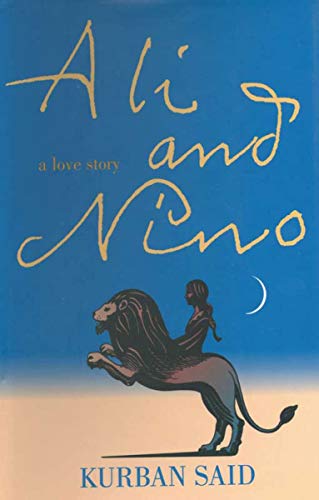Azerbaijani cinema, a lesser-known but vital sector of world film, holds a unique place in the cinematic landscape of the Caucasus.
Emerging at the intersection of East and West, Azerbaijani films offer a fascinating blend of cultural traditions, storytelling styles, and diverse narratives that echo the country’s rich historical and cultural tapestry.
Dating back to 1898 with the documentary footage titled “The Oil Wells of Baku,” Azerbaijani cinema has a long and eventful history. It flourished during the Soviet era, producing films that were not only popular in Azerbaijan but also resonated across the Soviet Union.
Following the country’s independence in 1991, the film industry faced numerous challenges, but it has been steadily reviving and evolving, mirroring the nation’s own transition and growth.
Azerbaijani films span a range of genres, from historical epics and folkloric tales to modern dramas and comedies.
They often explore themes closely tied to Azerbaijani culture and society, including family dynamics, rural and urban life, national identity, and the impact of socio-political changes. Many films also reflect the nation’s complex history and its enduring spirit of resilience and hope.
Best Azerbaijani Movies
The following list presents some of the finest films in Azerbaijani cinema.
Each of these films, in its unique way, embodies the spirit and creativity of Azerbaijani filmmaking. They offer a window into a captivating world, inviting viewers to experience the rich cultural and narrative depth of Azerbaijani cinema.
1. Ali and Nino (2016)
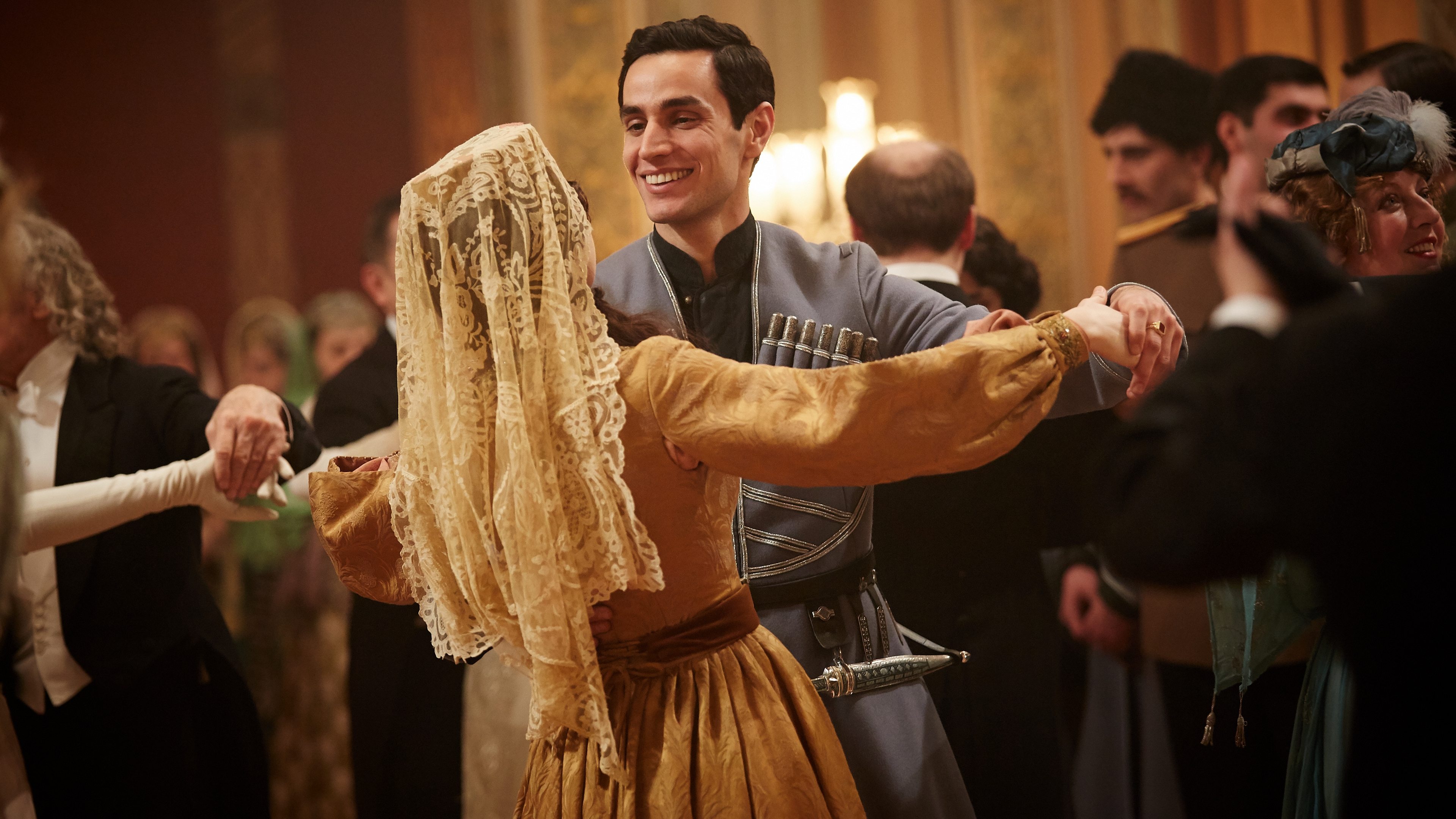
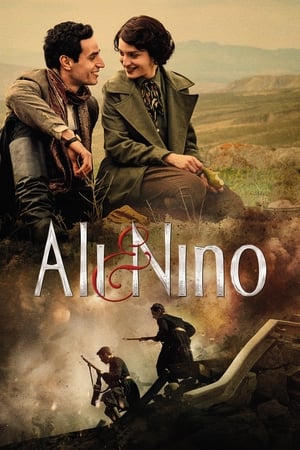
Ali and Nino
While the world was falling apart, they were falling in love.
2016 • 1h 40min • ★ 6.7/10 • Azerbaijan
Directed by: Asif Kapadia
Cast: Adam Bakri, María Valverde, Connie Nielsen, Mandy Patinkin, Numan Acar
Muslim prince Ali and Georgian aristocrat Nino have grown up in the Russian province of Azerbaijan. Their tragic love story sees the outbreak of the First World War and the world’s struggle for Baku’s oil. Ultimately they must choose to fight for their country’s independence or for each other.
“Ali and Nino” is a 2016 romantic drama film directed by Asif Kapadia. It is based on the acclaimed novel of the same name written by Kurban Said.
The story is set in the early 20th century and follows the love affair between Ali Khan Shirvanshir, an Azerbaijani Muslim, and Nino Kipiani, a Georgian Christian.
Set against the backdrop of the political and cultural turmoil of the time, “Ali and Nino” explores the themes of love, identity, and the clash of civilizations.
The film depicts the challenges faced by the couple as they navigate societal expectations, religious differences, and the changing political landscape.
The film offers a visually stunning portrayal of Azerbaijan, Georgia, and other locations where the story unfolds. It captures the beauty of the landscapes and presents a vivid depiction of the cultural richness and diversity of the region.
“Ali and Nino” received mixed reviews from critics, with praise for its cinematography and the performances of the lead actors. However, some critics felt that the film struggled to fully capture the depth and complexity of the source material.
Please note that the availability of “Ali and Nino” may vary depending on your location and the sources you have access to.
- a wonderful love story first published iin German 1937
- Hardcover Book
- Said, Kurban (Author)
- English (Publication Language)
- 240 Pages - 09/01/1999 (Publication Date) - Overlook Books (Publisher)
2. Pomegranate Orchard (2017)
“Pomegranate Orchard” is a 2017 Azerbaijani drama film directed by Ilgar Najaf. The film explores themes of family, tradition, and the impact of societal changes on rural communities.
The story is centered around Gabil (played by Hasan Agayev), an aging man who returns to his ancestral village in Azerbaijan after spending several years in prison.
He arrives at his family’s pomegranate orchard, hoping to reconnect with his loved ones and rebuild his life.
As Gabil tries to reintegrate into the village, he faces tension and conflict among his family members and encounters resistance from the community.
For more about Azerbaijan cinema, you can check out our overview of the best films from Azerbaijan and our country-by-country exploration of global cinema.
The film delves into the complexities of familial relationships, secrets from the past, and the struggle to preserve tradition in the face of modernization.
“Pomegranate Orchard” captures the beauty of the Azerbaijani countryside, presenting stunning landscapes and incorporating elements of the region’s cultural heritage.
It delves into the symbolism of the pomegranate tree, which represents fertility, tradition, and a connection to the land.
The film addresses themes of forgiveness, redemption, and the resilience of human spirit. It offers a poignant reflection on the challenges faced by individuals caught between tradition and progress, and the conflicts that arise within changing societies.
“Pomegranate Orchard” has received critical acclaim for its evocative cinematography, naturalistic performances, and its portrayal of the struggle to adapt to societal transformations while maintaining a sense of identity.
The film stands as a significant contribution to Azerbaijani cinema, showcasing the talents of director Ilgar Najaf and offering a contemplative exploration of human relationships and the complexities of rural life.
- Ali, Tariq (Author)
- English (Publication Language)
- 244 Pages - 07/01/1993 (Publication Date) - Verso (Publisher)
3. The Scoundrel (1988)
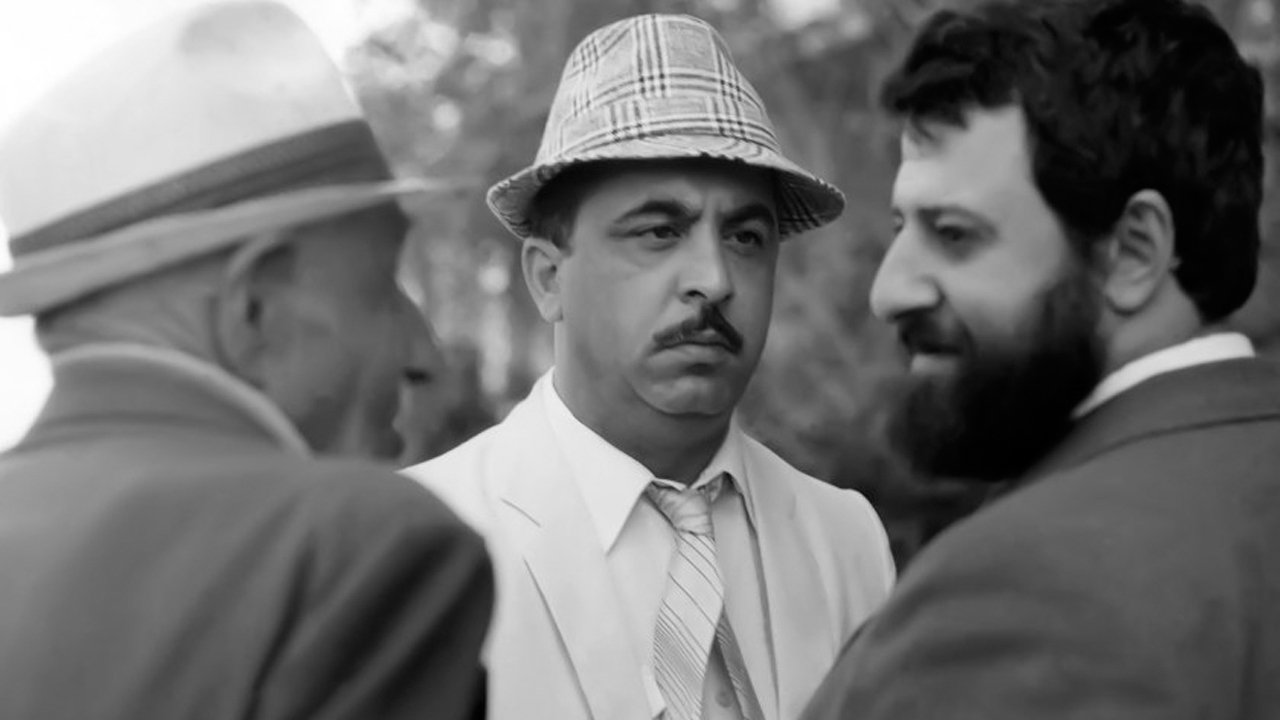
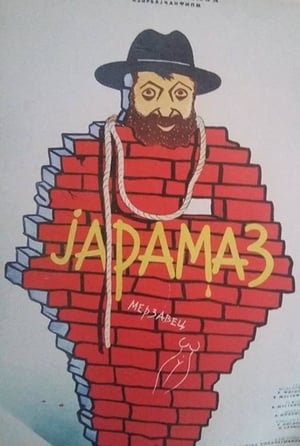
The Scoundrel
1988 • 1h 30min • ★ 5.3/10 • Soviet Union
Directed by: Vagif Mustafayev
Cast: Mamuka Kikaleishvili, Hasanagha Turabov, Yashar Nuri, Larisa Borodina, Aghahuseyn Karimov
Film exposes the corruption and the decadence of the late Soviet bureaucracy in Azerbaijan SSR through the eyes of a naive Azerbaijani adult man, Hatem.
“The Scoundrel” (also known as “Peking Opera Blues” or “Do ma daan”) is a 1988 Hong Kong action-comedy film directed by Tsui Hark.
The film is set in the 1910s during the period of political unrest in China and follows the adventures of three women who become involved in a revolutionary plot against a warlord.
The story revolves around three main characters: Tsao Wan (played by Brigitte Lin), a skilled Peking Opera performer who disguises herself as a man to infiltrate a secret society; Sheung Hung (played by Sally Yeh), a wealthy young woman seeking independence from her oppressive family; and Pat Neil (played by Cherie Chung), a pickpocket and con artist with her own motivations.
“The Scoundrel” blends elements of action, comedy, and political intrigue. It combines thrilling martial arts sequences with witty humor, offering a unique and entertaining cinematic experience.
The film also touches upon themes of gender roles, social hierarchy, and the pursuit of freedom during a turbulent historical period.
As the three women cross paths and their paths intertwine, they find themselves embroiled in a conspiracy that involves stolen documents, hidden treasure, and the fight against a powerful warlord.
Their courage, resourcefulness, and determination propel the narrative forward, creating a sense of adventure and suspense.
“The Scoundrel” received critical acclaim upon its release, praised for its energetic performances, engaging storytelling, and skillful blend of genres.
It showcases Tsui Hark’s directorial style, known for his dynamic camerawork, elaborate action sequences, and his ability to infuse his films with both entertainment value and social commentary.
The film is considered a classic of Hong Kong cinema and is often regarded as one of Tsui Hark’s most accomplished works.
It has had a lasting impact on the genre and continues to be celebrated for its memorable characters, stylish visuals, and its exploration of political and social themes within an entertaining narrative.
No products found.
4. Nabat (2014)
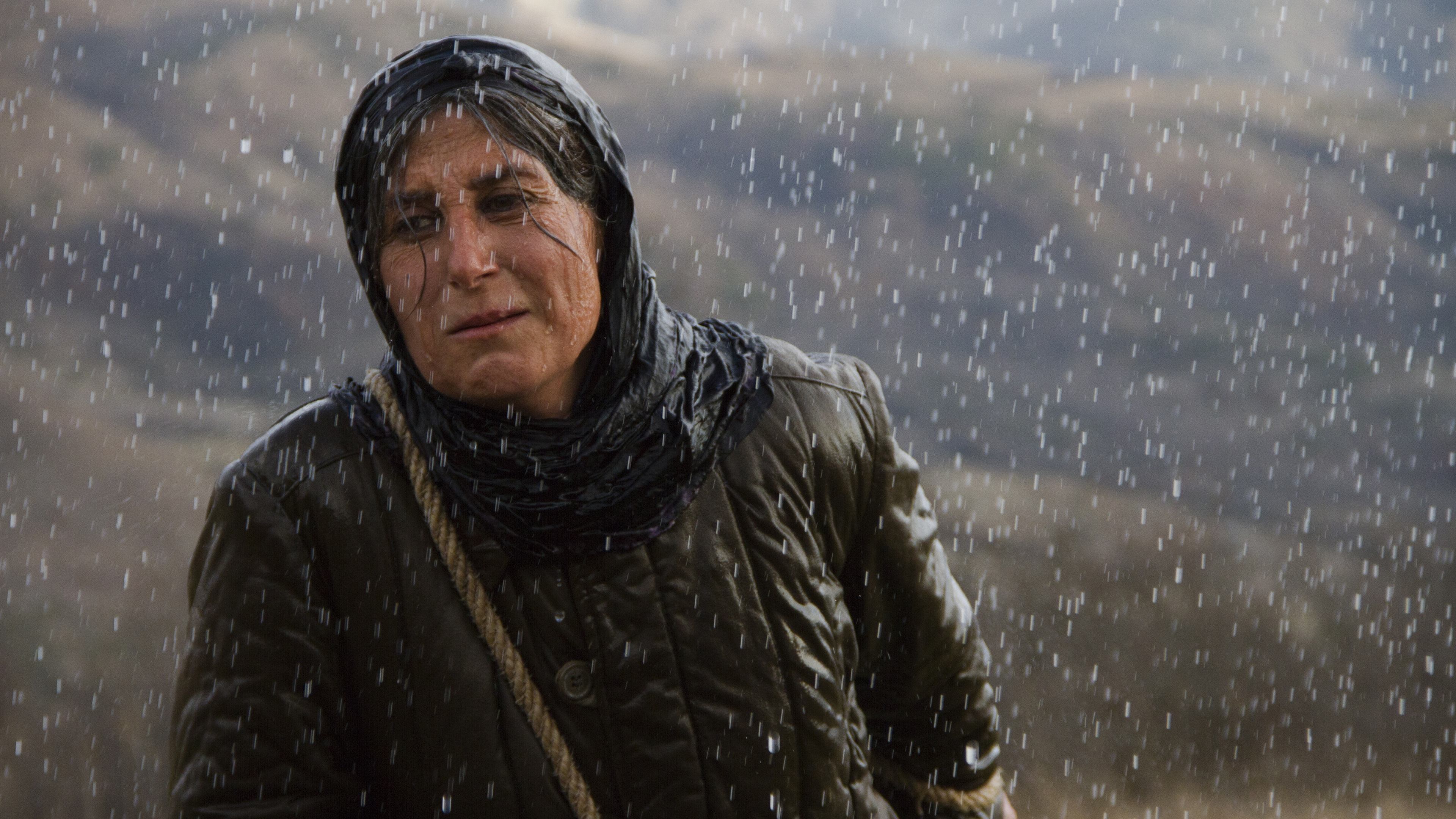
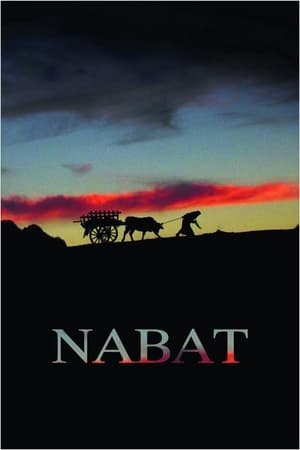
Nabat
2014 • 1h 45min • ★ 6.2/10 • Azerbaijan
Directed by: Elchin Guliyev
Cast: Fatemeh Motamed-Arya, Vidadi Aliyev, Sabir Mammadov, Farhad Israfilov, Ramil Zeynalov
The story is set during an upsurge in the Nagorno-Karabakh conflict and revolves around an old, sick ex-forestry worker and his wife Nabat, whose son has died in battle.
“Nabat” is a 2014 Azerbaijani drama film directed by Elchin Musaoglu. The film tells the story of an elderly woman named Nabat, who lives in a remote village in Azerbaijan during the Nagorno-Karabakh conflict.
Set against the backdrop of war, “Nabat” explores the struggles and resilience of its titular character. After losing her husband in the conflict, Nabat is left alone to tend to their small farm.
Despite the surrounding chaos and hardships, she remains steadfast in her determination to protect her land and preserve her way of life.
The film captures the human toll of war and the impact it has on individuals and communities.
It portrays the emotional journey of Nabat as she faces loss, isolation, and the harsh realities of conflict. Through her story, “Nabat” reflects on themes of resilience, hope, and the enduring spirit of humanity.
“Nabat” received critical acclaim for its powerful storytelling, atmospheric cinematography, and the nuanced performance by its lead actress, Fatemeh Motamed-Aria. The film was well-received at international film festivals and brought attention to Azerbaijani cinema.
By highlighting the experiences of ordinary people affected by war, “Nabat” provides a humanistic perspective on the consequences of conflict.
It serves as a poignant reminder of the resilience of individuals in the face of adversity and the universal desire for peace and stability.
- Used Book in Good Condition
- Vidocq, Francois Eugene (Author)
- English (Publication Language)
- 433 Pages - 05/01/2003 (Publication Date) - AK Press (Publisher)
5. On Distant Shores (1958)
“On Distant Shores” released in 1958. It’s possible that the film may be less well-known or not widely documented.
It’s also worth noting that my training data only goes up until September 2021, so there may have been more recent developments or information about this film that I’m unaware of.
If you have any additional details or context about the film, I can try to assist you further.
- Sarah Sundin (Author)
- English (Publication Language)
- 430 Pages - 08/01/2013 (Publication Date) - Revell (Publisher)
6. O Olmasin, Bu Olsun (1956)
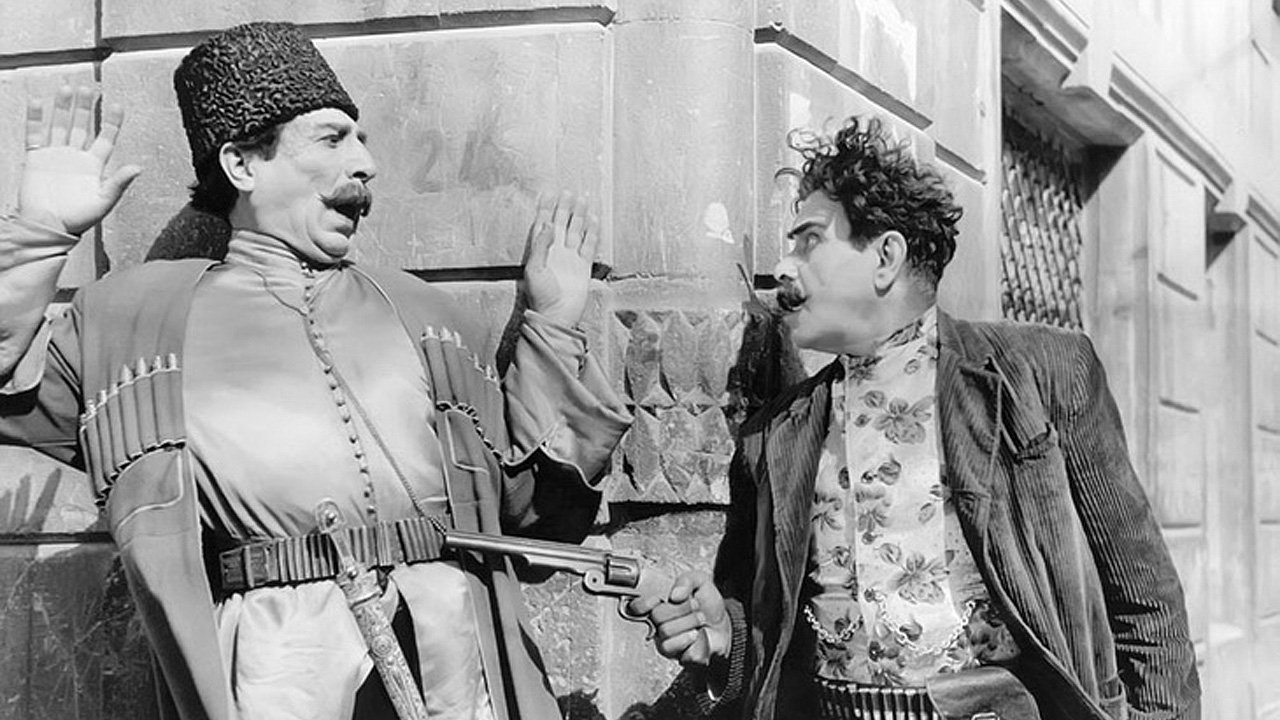
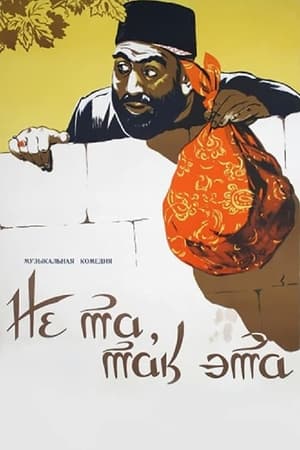
If Not This, Then That
1956 • 1h 27min • ★ 5.6/10 • Soviet Union
Directed by: Huseyn Seyidzadeh
Cast: Arif Mirzaguliyev, Tamara Gozalova, Barat Shakinskaya, Ismail Afandiyev, Mustafa Mardanov
Popularly known by the name of the main character, "Mashadi Ibad" was based on a musical comedy by composer Uzeyir Hajibeyov and written in the early 1900s. The story is based on the age old-theme of a beautiful young woman Gulnaz who falls in love with a young man Sarvar but is obliged to marry someone else.
“O Olmasin, Bu Olsun” is a classic Turkish comedy film released in 1956, directed by Atıf Yılmaz. The title translates to “Let It Not Be, Let It Be” in English.
The film is set in Istanbul and revolves around the comical misadventures of Şinasi and Güzin, a married couple played by Sadri Alışık and Belgin Doruk.
Şinasi is an unemployed dreamer who constantly gets into humorous situations, while Güzin is a resourceful and supportive wife trying to navigate their chaotic lives.
“O Olmasin, Bu Olsun” captures the essence of Turkish urban life in the 1950s and satirizes societal norms and conventions.
The film utilizes witty dialogue, slapstick humor, and lively performances to depict the struggles, aspirations, and idiosyncrasies of its characters.
Atıf Yılmaz’s direction in the film showcases his skill in crafting comedic timing and situational humor. The movie became a significant milestone in Turkish cinema, popularizing the comedy genre and launching the careers of its lead actors.
“O Olmasin, Bu Olsun” is regarded as a classic in Turkish cinema and continues to be cherished for its timeless humor and nostalgic depiction of Istanbul’s city life. It has had a lasting cultural impact and remains an influential and beloved film in Turkey’s cinematic history.
7. Buta (2011)
“Buta” is a 2011 Azerbaijani animated film directed by Ilgar Najaf.
The film is based on a novella by the acclaimed Azerbaijani writer Chingiz Abdullayev and is set in the historical city of Baku during the early 20th century.
“Buta” tells the story of a young boy named Buta, who lives in a small village surrounded by beautiful nature.
Buta is a kind-hearted and imaginative boy who dreams of traveling the world and experiencing new adventures. However, his life takes a dramatic turn when his father is tragically killed.
Determined to honor his father’s memory, Buta embarks on a journey that will test his courage and resilience.
The film explores themes of love, loss, and the power of dreams. It captures the spirit of childhood innocence and imagination while addressing deeper issues of grief, acceptance, and finding one’s purpose in life.
“Buta” blends elements of fantasy and folklore with a poignant coming-of-age narrative.
Visually, “Buta” is notable for its stunning hand-drawn animation and the richly detailed depiction of Azerbaijani culture and landscapes.
The film’s aesthetic draws inspiration from traditional Azerbaijani miniature paintings and creates a visually immersive experience.
“Buta” received critical acclaim for its artistic merits and its ability to capture the emotional depth of its characters.
It has been recognized with numerous awards at international film festivals, showcasing the talent and creativity of Azerbaijani animation.
Overall, “Buta” is a heartfelt and visually striking animated film that explores universal themes through the eyes of a young protagonist.
It showcases the unique storytelling traditions of Azerbaijani cinema and offers a poignant and inspiring cinematic experience.
8. The Day Passed (1971)
“The Day Passed” (1971). It’s possible that the film you’re referring to may have a different title or is not widely known.
If you have any additional details or if there is another film you’d like to inquire about, please let me know, and I’ll do my best to assist you.
- Amazon Kindle Edition
- Roberts, Lawrence (Author)
- English (Publication Language)
- 467 Pages - 07/28/2020 (Publication Date) - Mariner Books (Publisher)
9. Yanlis Anlama (2017)
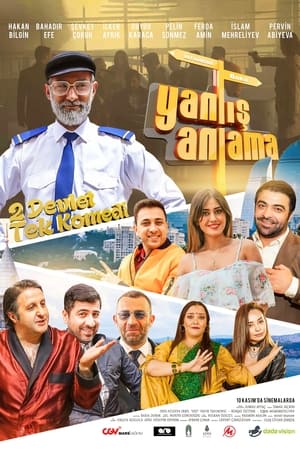
Yanlış Anlama
2017 • 1h 33min • ★ 4.5/10 • Turkey
Directed by: Ulaş Cihan Şimşek
Cast: Hakan Bilgin, Bahadır Efe, Şevket Çoruh, İlker Ayrık, Duygu Karaca
A family who has fallen into a difficult situation in Turkey goes to Azerbaijan for their legacy. The Azerbaijani and Turkish families have to do the items together in the list given to them in order to receive their inheritance.
“Yanlis Anlama” released in 2017. It’s possible that the film may have a different title or it is a lesser-known or independent production.
If there is any additional information you can provide about the film or if it is known by any other names, I can try to assist you further.
10. Nizami (1982)
“Nizami” released in 1982. It’s possible that the film may be less well-known or have limited information available.
It could also be a regional or lesser-known film that hasn’t gained international recognition.
If you have any other details or if there is another film or topic you’d like to inquire about, please let me know and I’ll be happy to assist you.
- Hardcover Book
- Nizami (Author)
- English (Publication Language)
- 07/01/1982 (Publication Date) - Yazichi (Publisher)


